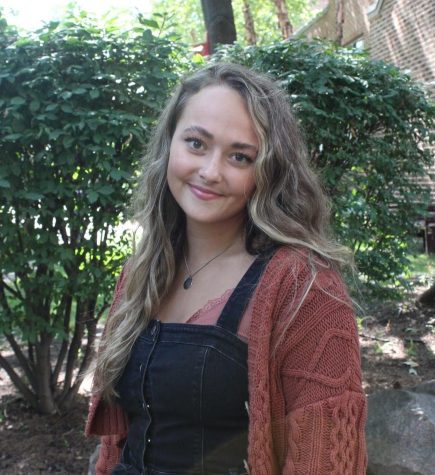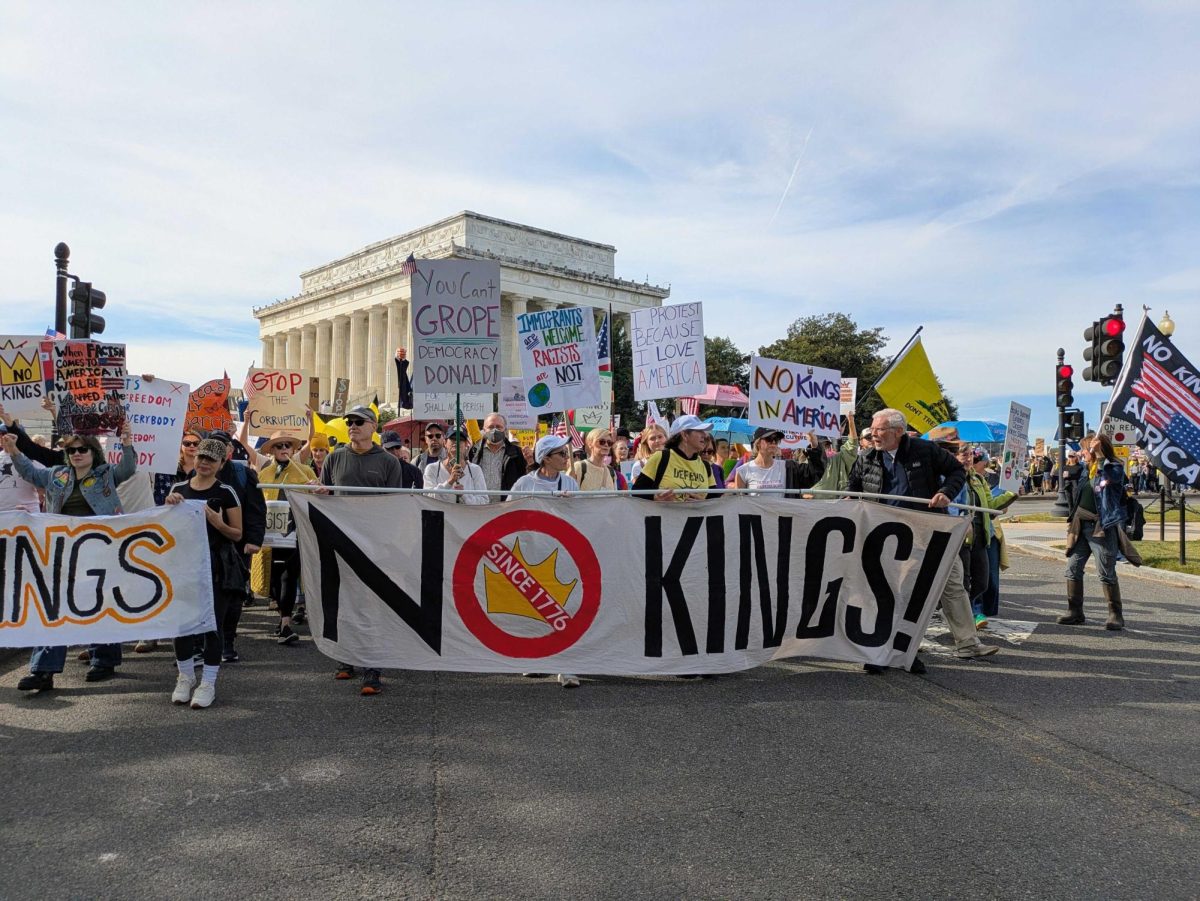COVID-19: An open letter to Gannon about in-person classes
January 7, 2021
COVID-19.
This has been what seems like the only topic of discussion since its outbreak in March 2020.
As this deadly virus has infected nearly 86 million people and stolen the lives of almost 2 million, counties, states, countries and continents have been cornered into a checkmate, forcing mandatory shutdowns.
As crucial as these lockdowns and public regulations, such as face masks, temperature checks, business closures and sanitation stations, have been in slowing the spread of the virus and flattening the curve, they have also posed major detriments, especially for K-12 and higher education students.
As a result of the pandemic, many schools across America have been forced to provide classes virtually full time or in a hybrid style, which allows students to go to class face-to-face part time.
For the most part, Gannon University was able to provide in-person classes for the fall 2020 semester. However, some classes were obligated to be taught hybrid due to class size, and others were pushed completely online due to teacher discretion or for medical reasons.
Although having the option of virtual class format is convenient in the case of a large, county-wide outbreak, this should be a last resort option.
The whole purpose of applying to an in-person college campus is to do just that: attend class on campus and get the education that our steep tuition funds. This way, students can bond with their teachers, meet their classmates and focus their attention on the curriculum without at-home or technological distractions.
Personally, for the classes I had to take virtually, or part time on Zoom, my grades suffered tremendously. I am an active learner who also gets distracted very easily. So not only could I not turn to my peers and ask questions or actively discuss a topic, but I would be thinking about other assignments, if I needed to let the dog out or how many minutes I had until I needed to switch the laundry.
As the semester began to come to an end, I also had to worry about my grandfather, who was diagnosed with terminal cancer. Going to class for me, as well as many K-12 and college students, can provide an escape, even more so for those trapped in abusive, toxic situations.
Arguably, the effects of class-, school- or government-mandated shutdowns can be more detrimental than the virus itself, especially for young people such as those who attend Gannon. Of course, there are exceptions when it comes to family exposure or other health issues, but in that case, the choice to go virtual should be left for the concerned student or teacher, not for certain classes or the entire campus. We, as Americans, must fight for the right of freedom to our own bodies, and this is one step we can take.
Since the start of the outbreak in March, suicides and drug overdoses among high school students have surpassed the death rate for COVID-19, according to Robert Redfield, director of the Centers for Disease Control. This is an alarming statistic and proves that the shutdowns and isolation have posed more of a threat to lives than the virus itself, to provide just one example of the detriments to a shutdown.
Attending class on campus, however, is about so much more than class itself. At Gannon, we quite literally are a family. Our sense of community is what makes us who we are. As we face tough times, we need to lean on our community to help us through, not cut off our access to it.
If we do not remain in person at all costs at Gannon, we will also be fostering a generation not fully prepared for the workforce.
Not only for students like me who have a hard time focusing, but for all students, virtual education is not the same as on-campus education. Testing is different and less secure, allowing students to cheat more easily and not retain the information students had to in previous years. Distractions are inevitable, whether that be on the students’ streaming devices or in their environment. Student monitoring is limited to one camera angle for the teacher, allowing for lapsed attention and misbehavior. Face-to-face social skills are also in a state of hibernation in this setting, heightening social anxiety when things do return to normal and preventing students from attaining the social skills necessary to obtain a job in the future.
These drawbacks, amongst others, are just one example of how students who attend school virtually during the COVID-19 pandemic, especially in a college setting like Gannon, will be less equipped for the workforce than prior graduates.
For these reasons, Gannon should remain open, in-person, at all costs.
ALI SMITH





Katie Dickey • Jan 11, 2021 at 9:08 am
Hi Ali,
Thank you for sharing your input on in-person classes. While I agree with the intentions you state (preparing students for their careers, providing social experiences for students, and protecting the mental health of our students), I do not agree that Gannon is making the best choice by remaining open right now. The circumstances that Erie County is under are completely different than they were last semester. When most upperclassman students were moving in last term (August 9), there were 646 confirmed COVID cases in Erie. As of today, there are 6,864. This difference is exponential, and has put incredible strain on the Erie healthcare system. As of January 8, there were 101 people hospitalized JUST for the virus in Erie County, and our zone (the actual city of Erie) has the highest rate of infection with about 30% of the total cases.
My concern is that while yes, we may have dodged losing any of our students to the virus last semester, we may not be so lucky twice with this new explosion of spread in our community. Additionally- our choice to remain open does not just affect our (primarily young and predominantly healthy) students. The food-workers, maintenance staff, professors, and administrators at the university are being put at risk of contracting the virus, and any of us (staff or student) could easily bring the virus back into the community given our urban setting and need for essential services (grocery shopping etc.)
Katie Dickey • Jan 11, 2021 at 9:02 am
Hi Ali,
Thank you for sharing your input on in-person classes. While I agree with the intentions you state (preparing students for their careers, providing social experiences for students, and protecting the mental health of our students), I do not agree that Gannon is making the best choice by remaining open right now. The circumstances that Erie County is under are completely different than they were last semester. When most upperclassman students were moving in last term (August 9), there were 646 confirmed COVID cases in Erie. As of today, there are 6,864. This difference is exponential, and has put incredible strain on the Erie healthcare system. As of January 8, there were 101 people hospitalized JUST for the virus in Erie County, and our zone (the actual city of Erie) has the highest rate of infection with about 30% of the total cases.
My concern is that while yes, we may have dodged losing any of our students to the virus last semester, we may not be so lucky twice with this new explosion of spread in our community. Additionally- our choice to remain open does not just affect our (primarily young and predominantly healthy) students. The food-workers, maintenance staff, professors, administrators at the university are being put at risk of contracting the virus, and any of us (staff or student) could easily bring the virus back into the community given our urban setting and need for essential services (grocery shopping etc.)
If Gannon embraces their core values of, “Faith, leadership, inclusiveness and social responsibility,” they will step up and make the safest, most socially conscious decision right now. Of course it is not ideal, of course it is not what any of us would want, but it can save lives on campus and protect our greater Erie community. This is our moment to be great- and to stop a crisis before it becomes a crisis- I pray we will take it.